To celebrate scientists and scientific advancements, we have collected a list of the most famous Christian scientists that will inspire us for the greater good.
Have you ever wondered why some people are famous while others aren’t? Or maybe you think that your talent or skills don’t matter as much as hard work. Well, it turns out that what matters most is how you handle success and failure. It’s true even in the Christian Science world.
Christian Scientists are some of the most dedicated, smart, and talented people in the universe. Most of these famous scientists went to an equivalent of the Christian Science Sunday school.
This blog post contains information we derived from several publications, including The White House, The Nobel Prize, and many other online libraries. We share the stories of renowned scientists who believed in the existence of God to inspire you to study harder and become a better person.
Let’s take a look at the famous Christian scientists!
Table of Contents
Famous Christian Scientists
#19. Johannes Kepler (1571-1630): The God’s Mathematician Who Discovered The Secrets of The Universe

What makes Johannes Kepler famous?
Johannes Kepler, who was born in Germany, is one of the most famous astronomers of all time. His three laws of planetary motion are considered to be a cornerstone of modern astronomy. He was a religious man, as evident in his writings. Kepler believed that God exists and that He had created a perfect universe and that we cannot understand it without studying it.
[Source: Encyclopedia Britannica]
#18. John Eccles (1903-1997): A Hero of Neuroscience Who Explained How Signals Pass Between Nerve Cells

What makes John Eccles famous?
John Eccles, an Australian-born scientist, was one of the greatest neurophysiologists to ever live. Not only did he revolutionize the field of neuroscience, but he also helped make it possible for us to understand synaptic transmission. Eccles was one of the three recipients of the 1963 Nobel Prize for Physiology and Medicine, alongside Alan Hodgkin and Andrew Huxley, for their contributions to the synapse.
While some may not be aware of this fact, John Eccles was a practicing Roman Catholic Church throughout his life.
[Source: The Nobel Prize]
#17. Blaise Pascal (1623-1662): Inventor of The Calculator
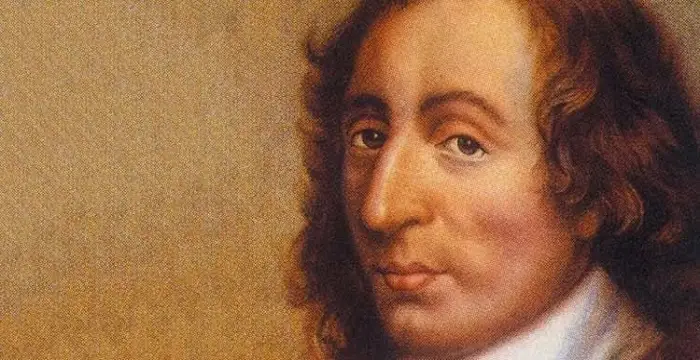
What makes Blaise Pascal famous?
Blaise Pascal was a French Catholic theologian, inventor, mathematician, and physicist. He is most famous for his invention of the mechanical calculator, adding machine, and Pascal’s calculator.
Pascal also contributed to probability and game theory, which are two areas of mathematics that deal with how likely something is to occur given a set of circumstances. He also introduced what came to be known as Pascal’s Principle of Pressure.
[Source: Encyclopedia Britannica
Similar Articles:
- 18 Famous Asian Scientists You May Not Know
- 20 Famous American Scientists You Should Know
- 17 Famous Forensic Scientists You Should Know
#16. Antonie Van Leeuwenhoek (1632-1723): Father of Microbiology

What makes Antonie Van Leeuwenhoek famous?
Antonie van Leeuwenhoek was a Dutch scientist who became famous for his discoveries about microscopic creatures that had never been seen before. He created a microscope which allowed him to discover protozoa and bacteria.
Leeuwenhoek was also a Calvinist who believed that God had given him power over nature, which meant that he could use his knowledge of the microscopic world to understand more about God’s creation.
[Source: Encyclopedia Britannica]
#15. James Prescott Joule (1818-1889): The English Physicist Who Discovered The Mechanical Equivalent of Heat

What makes James Prescott Joule famous?
James Prescott Joule was a man of many talents, and his accomplishments in mathematics and the scientific world were just as impressive as his contributions to the brewing industry. Born in Salford, Joule’s major contribution to science came after he discovered what became Joule’s Law. This discovery led to the law of conservation of energy and the first law of thermodynamics.
As one of the Christian scientists, his religious beliefs also helped inform his discoveries in this area: he believed in humility and God’s will.
[Source: Encyclopedia Britannica]
#14. Gregor Mendel (1822-1884): The Father of Genetics
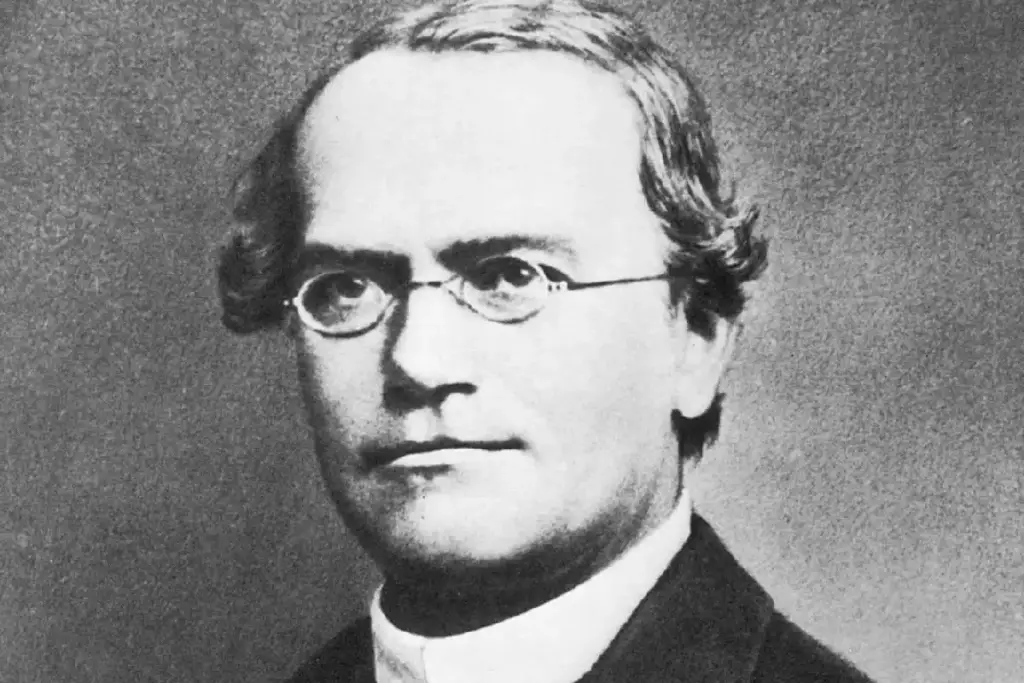
What makes Gregor Mendel famous?
Gregor Mendel, an Austrian botanist, is best known for his work on plant genetics. He discovered the fundamental principles of heredity and contributed to evolutionary biology and genetics.
Mendel was a Christian Science practitioner. In fact, it was his faith that inspired him to study plants.
[Source: Encyclopedia Britannica]
Similar Articles:
- 18 Famous Environmental Scientists You Should Know
- 20+ Famous Space Scientists That You May Not Know
- 16 Famous Data Scientists That You Should Know
#13. Alessandro Volta (1745-1827): The Inventor of Electric Battery
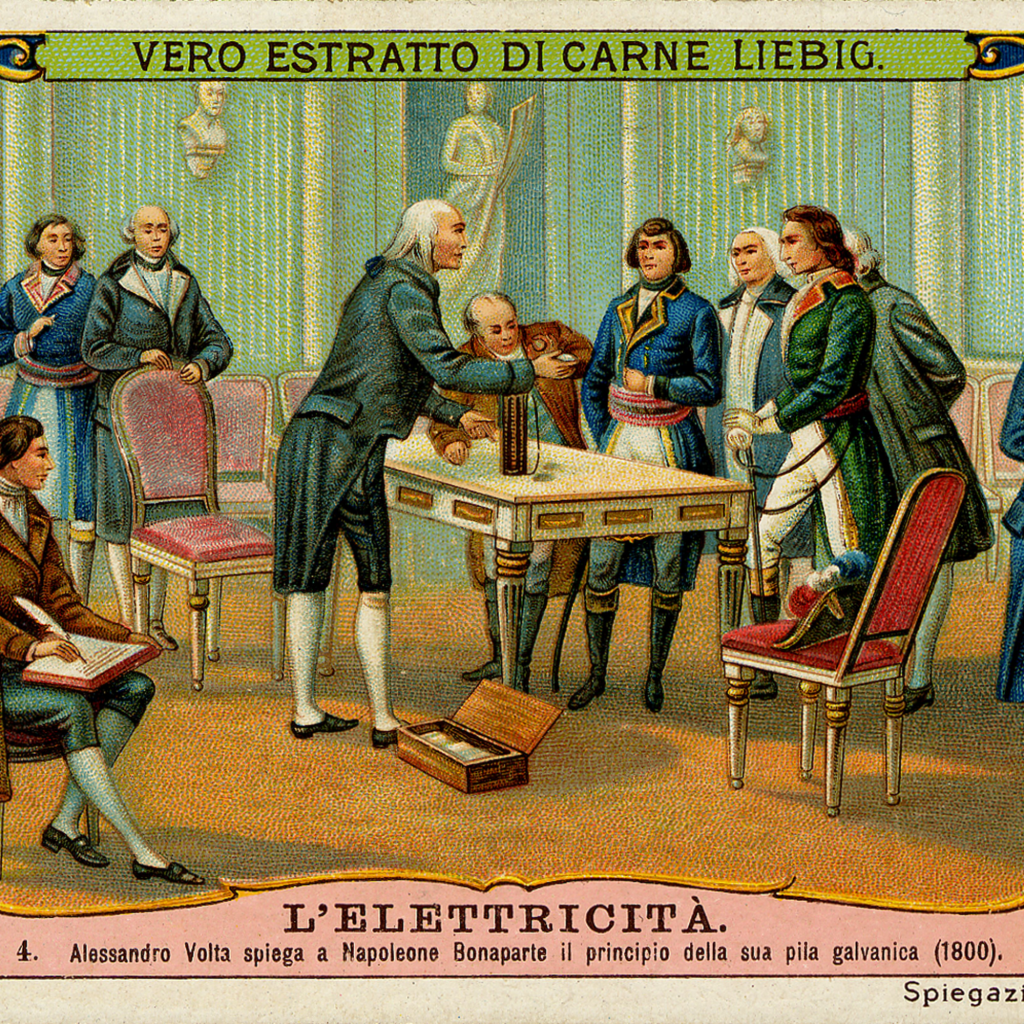
What makes Alessandro Volta famous?
Alessandro Volta was a chemist and physicist who is best known for inventing one of the first electric batteries, the Voltaic Pile. He also discovered methane—a gas that is commonly known for its presence in natural gas reserves and is used as a fuel source. Volta had a Christian Science upbringing.
[Source: Encyclopedia Britannica]
#12. Arthur Eddington (1882-1944): The Physicist Who Made Einstein Famous

What makes Arthur Eddington famous?
If you’re a science nut like me, you probably know that the stars aren’t fixed—they move! And this movement is due to their own gravity, which causes them to pull on one another.
Born in England, Arthur Stanley Eddington is best known for being the first scientist to study the stars, including their motion, structure, and evolution. He also retested the theory of relativity by Albert Einstein.
Eddington lived as a Quaker, as he grew up in a devout Christian family who loved science just as he loved religion.
[Source: Encyclopedia Britannica]
#11. Joseph Lister (1827-1912): Father of Modern Surgery
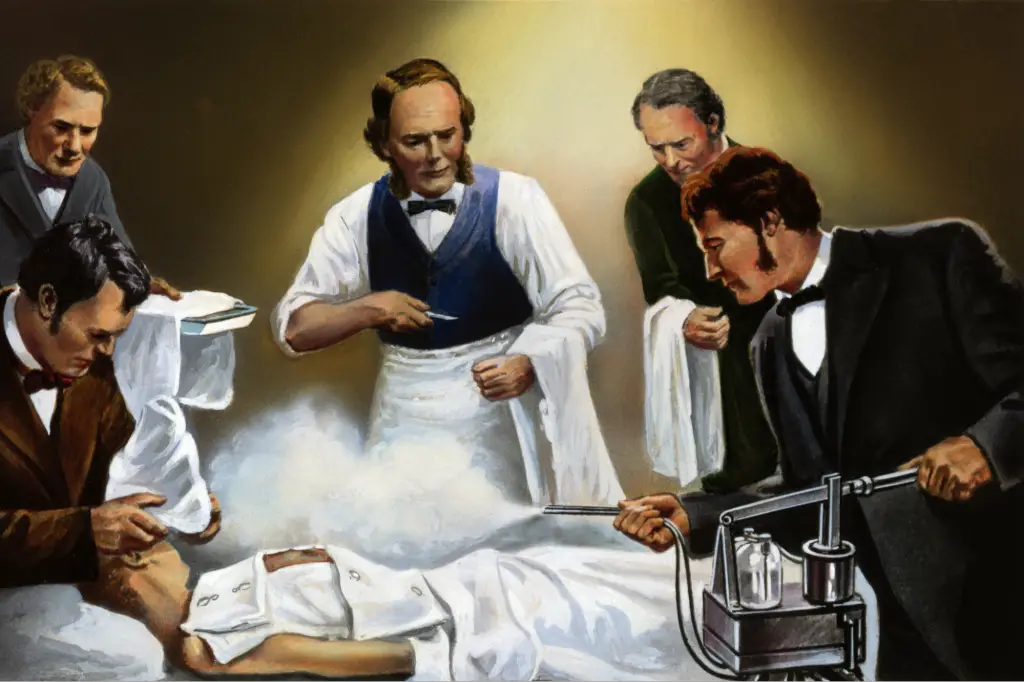
What makes Joseph Lister famous?
Joseph Lister wasn’t just a great surgeon—he was also a member of the Christian Science church.
Born in 1827, Lister grew up in West Ham, a small town east of London. He went on to become one of Britain’s most celebrated surgeons, with a lasting legacy that includes his work on sterilizing surgical equipment and his invention of the antiseptic paste known as carbolic acid (which is still used today as phenol).
Lister’s greatest legacy, however, may be his contribution to the field of surgery. He was the first medical scientist to use germ theory during surgery. In other words: he discovered how germs cause disease and used this knowledge to help prevent it.
[Source: National Library of Medicine]
Similar Articles:
- 20+ Famous Chemistry Scientists You May Want With Know
- 18 Famous Left-Handed Scientists That You Should Know
- 19 Famous Political Scientists That You Should Know
#10. Robert Boyle (1627-1691): The Father of Chemistry Who Made His Own Laws
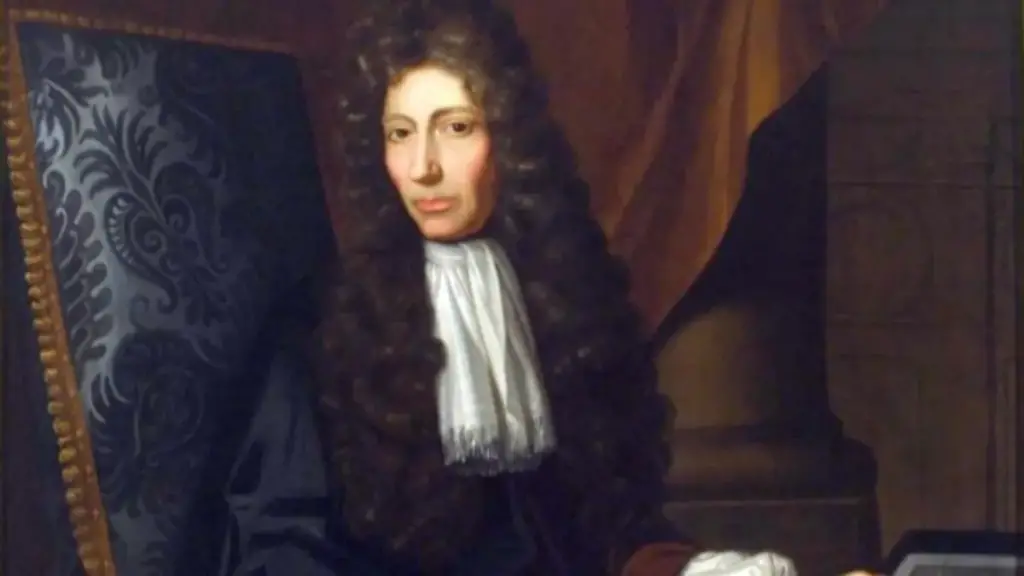
What makes Robert Boyle famous?
When you think of the fathers of modern chemistry, who do you imagine? A man with a big nose and an even bigger mustache? A bald guy in a lab coat?
If you’re thinking about Robert Hooke, you’re wrong. It’s actually Dr. Robert Boyle—and he was one of the first to develop the experimental scientific method by conducting practical research in the field.
Robert Boyle was a scientist and a philosopher who lived in Ireland and England. He was born in Lismore Castle on January 27, 1627, and schooled at Eton College.
Boyle is best known for his work in chemistry. He developed Boyle’s Law which states that pressure and volume are related to each other inversely as they increase or decrease with temperature. This law was an important step in understanding how different substances react with each other when heated or cooled.
Robert Boyle was also famous for his belief in God, which he expressed through his writings such as The Christian Virtuoso and A Free Enquiry into the Vulgarly Received Notion of Nature.
What is the best Robert Boyle quote?
“God would not have made the universe as it is unless He intended us to understand it.”
[Sources: Encyclopedia Britannica, Internet Encyclopedia of Philosophy]
#9. Antoine Lavoisier (1743-1794): The Father of Modern Chemistry
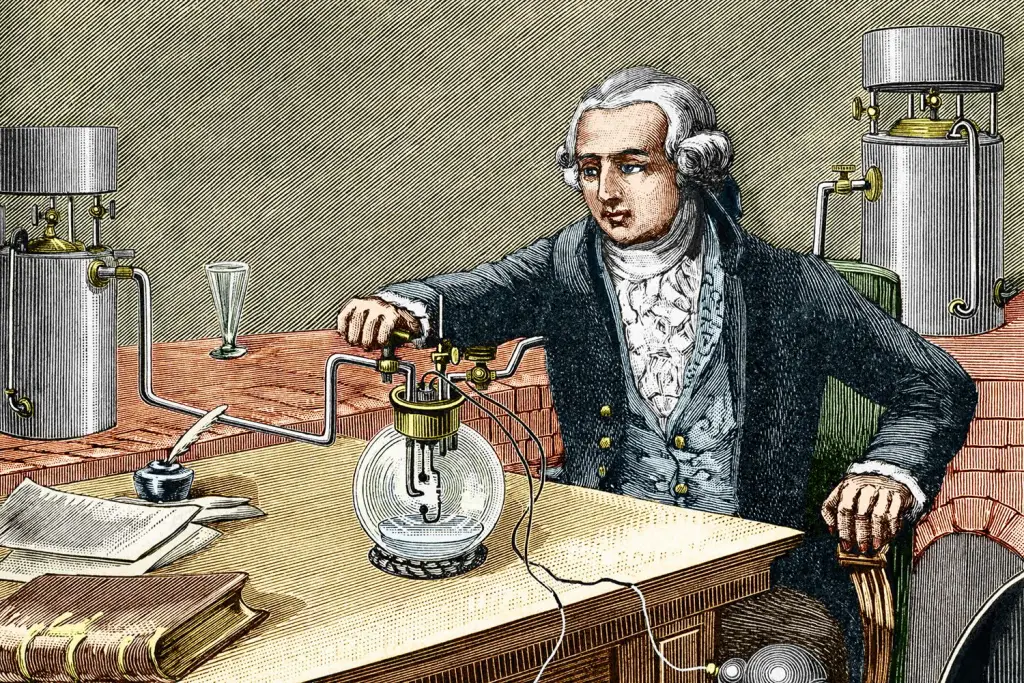
What makes Antoine Lavoisier famous?
Antoine Lavoisier was a French chemist and physicist who is best known for his scientific contributions to the chemical revolution of the 18th century. Lavoisier was born in Paris on August 26, 1743. He studied at College Mazarin (now University of Paris), where he developed a love for science.
Lavoisier’s most famous work involves identifying and naming hydrogen and oxygen. He is also well-known for discovering oxygen’s role in combustion. Lavoisier’s contribution to the development of the metric system resulted in an international system that is more efficient than the local measurement units.
In addition to his work in chemistry, Lavoisier believed strongly in Jesus Christ and the Scripture as an accurate source of knowledge about God’s creation, which explains his interest in studying science.
What is the best Antoine Lavoisier quote?
“Nothing is lost, nothing is created, everything is transformed.”
[Sources: Encyclopedia Britannica, New Advent]
#8. Leonhard Euler (1707-1783): Theologist and Mathematician Who Introduced New Concepts To Math
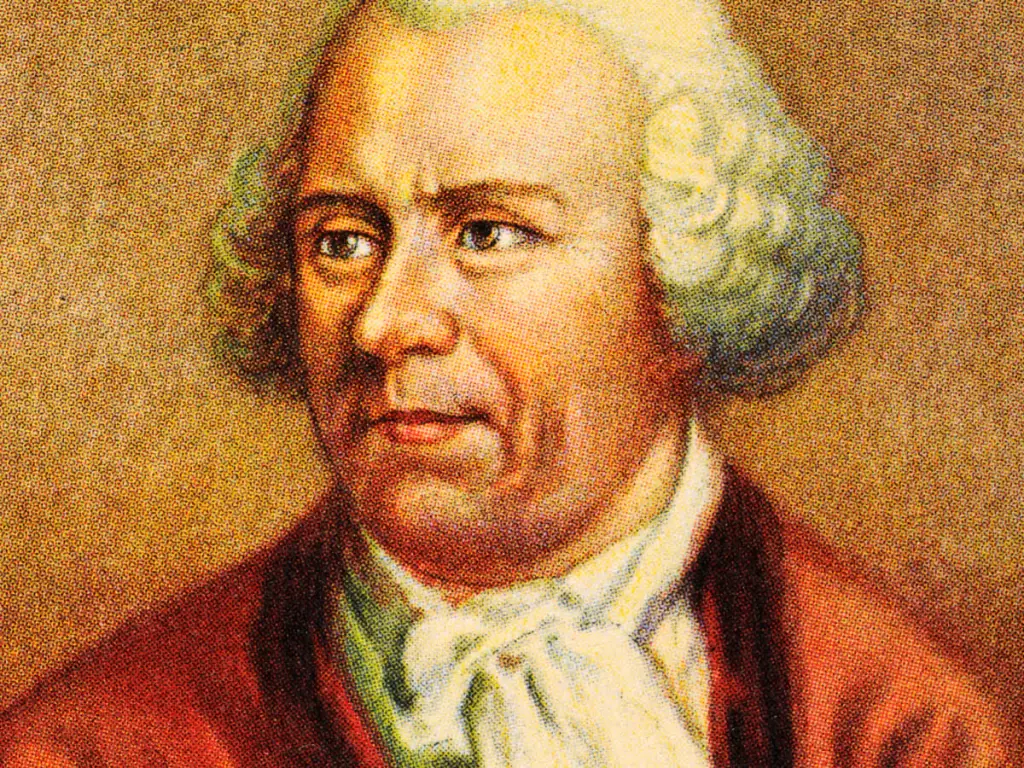
What makes Leonhard Euler famous?
Does the name Euler ring a bell? If not, it’s time to get to know one of the most brilliant minds of all time.
Leonhard Euler was born in 1707 in Basel, Switzerland. He studied mathematics and later theology at the University of Basel, but his real passion was for science.
Euler is most well-known for his work in infinitesimal calculus, analytical number theory, and complex analysis—areas that were new at that time. He introduced the power series to mathematics and used it to solve Pietro Mengoli’s Basel problem.
Euler not only introduced the Euler’s constant but also established its relationship with the gamma function, harmonic series, and other values.
Much like Isaac Newton before, Euler was a devout Christian scientist who believed that God had given him special powers as a human being to help advance science as an art form rather than just a collection of facts about nature.
What is the best Leonhard Euler quote?
“Logic is the foundation of the certainty of all the knowledge we acquire.”
[Sources: MacTutor, ThoughtCo ]
Similar Articles:
- 18 Famous Female Computer Scientists That You Should Know
- 17 Famous Modern Scientists That You Should Know
- 18 Famous Indian Scientists That You Should Know
#7. Michael Faraday (1791-1867): The Father of Electricity Who Discovered The Wonders of Magnetism
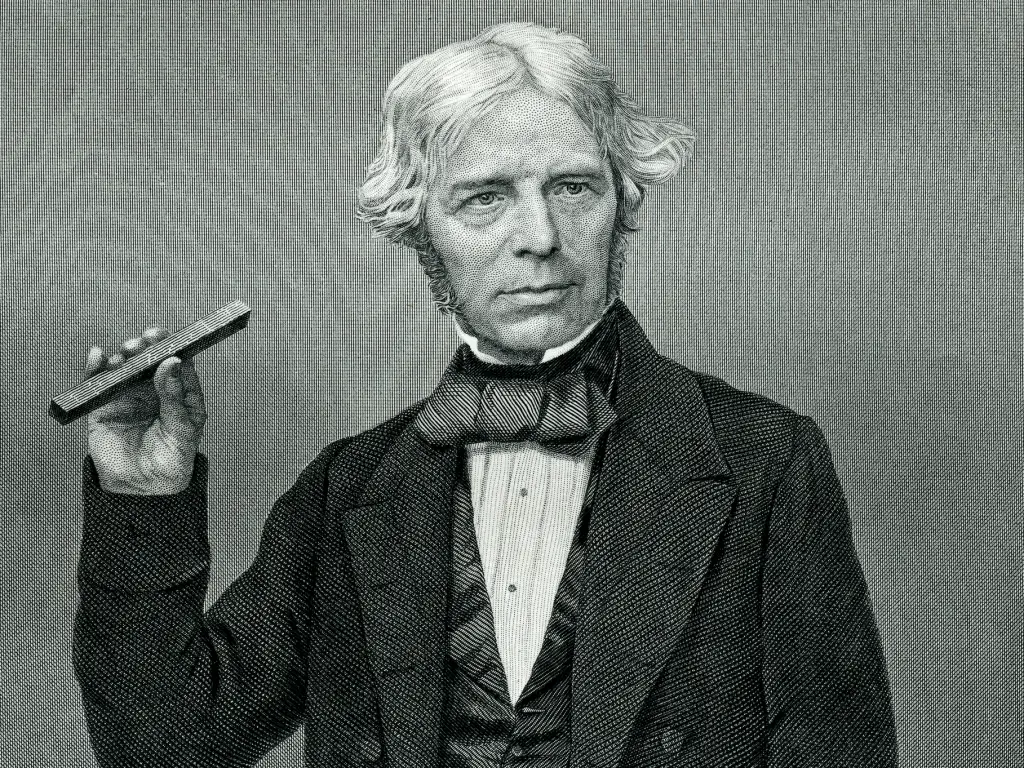
What makes Michael Faraday famous?
Michael Faraday, who was born in 1791 in Newington Butts and died in 1867, was a Christian scientist. He is most famous for his contributions to electrochemistry and electromagnetism.
Some of Faraday’s most important discoveries include benzene, laws of electrolysis, and nanoparticles. His invention of electromagnetic rotary devices paved the way for electricity use in the field of technology.
He also promoted the use of terms such as cathode, anode, ion, and electrode famous by using them in describing experiments with metals and electrolytic solutions.
Faraday also introduced the concept of oxidation numbers into chemistry by defining them as negative or positive electrical charges plus a direction signifying whether they were added (positive) or subtracted from other ions present.
What is the best Michael Faraday quote?
“Nothing is too wonderful to be true, if it be consistent with the laws of nature.”
[Sources: Encyclopedia Britannica, BBC]
#6. James Clerk Maxwell (1831-1879): A Force For Physics
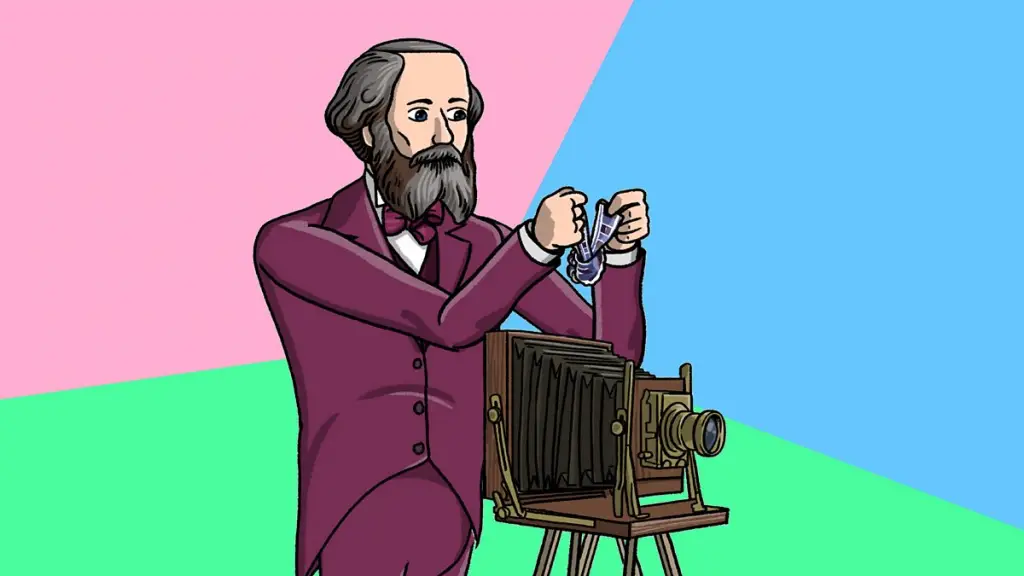
What makes James Clerk Maxwell famous?
If you want to know what the world would be like without electricity, look no further than James Clerk Maxwell.
This Scottish scientist and mathematician contributed to the advancement of electromagnetic radiation. His classical theory helped explain the relationship between light, electricity, and magnetism.
He contributed to the formulations of the Maxwell-Boltzmann equation, which explains the kinetic theory in gases. Maxwell’s discoveries led to the introduction of several fields in modern physics like quantum mechanics and special relativity. James Clerk Maxwell was a deeply religious man who later became an elder in the church.
What is the best James Clerk Maxwell quote?
“The only laws of matter are those that our minds must fabricate and the only laws of mind are fabricated by matter.”
[Sources: Physics World, Encyclopedia Britannica]
#5. Francis Collins (1950-present): The Award-Winning Physician & Geneticist Who Rose to Be The Lead Scientist in The Human Genome Project
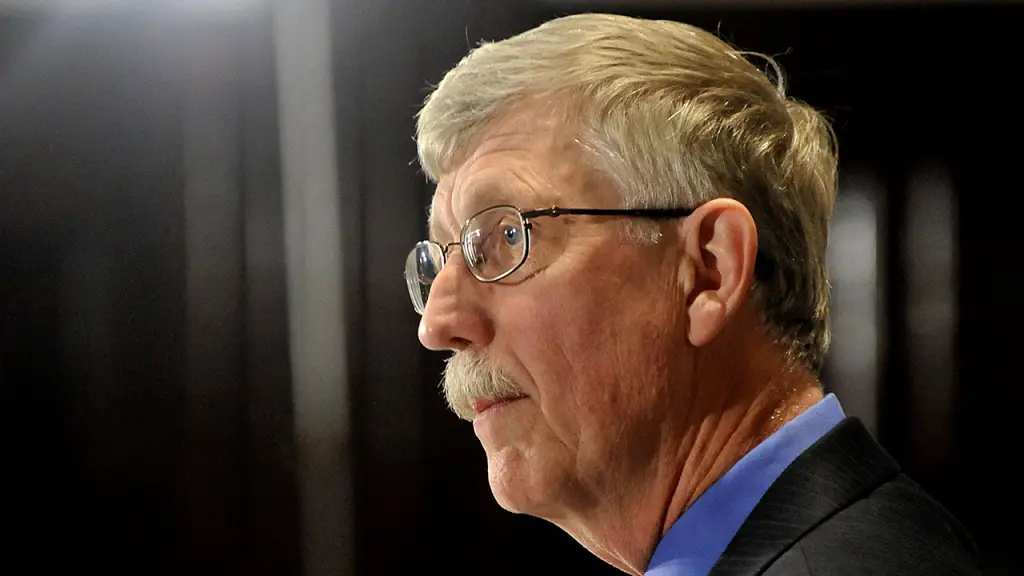
What makes Francis Collins famous?
Francis Collins is one of the world’s most brilliant scientists. He was born in Staunton, Virginia, and attended the University of Virginia and Yale University, where he received a Doctorate in physical chemistry. He then went on to earn a medical degree from the University of North Carolina in 1977.
Collins is best known for his work on the Human Genome Project. He also served as the director of the National Health Institute, a position he held for more than 13 years.
His contribution to medicine was he identified the genes that cause Huntington’s disease and cystic fibrosis. He received the National Medal of Science and the Presidential Medal of Freedom for his genetics research.
Francis Collins, who was an atheist, converted to Christianity after being convinced by a patient.
What is the best Francis Collins quote?
“One of the greatest tragedies of our time is this impression that has been created that science and religion have to be at war.”
[Sources: The New Yorker, The White House]
#4. Ernest Walton (1903-1995): The Award-Winning Physicist Who Pioneered Research in Nuclear Physics
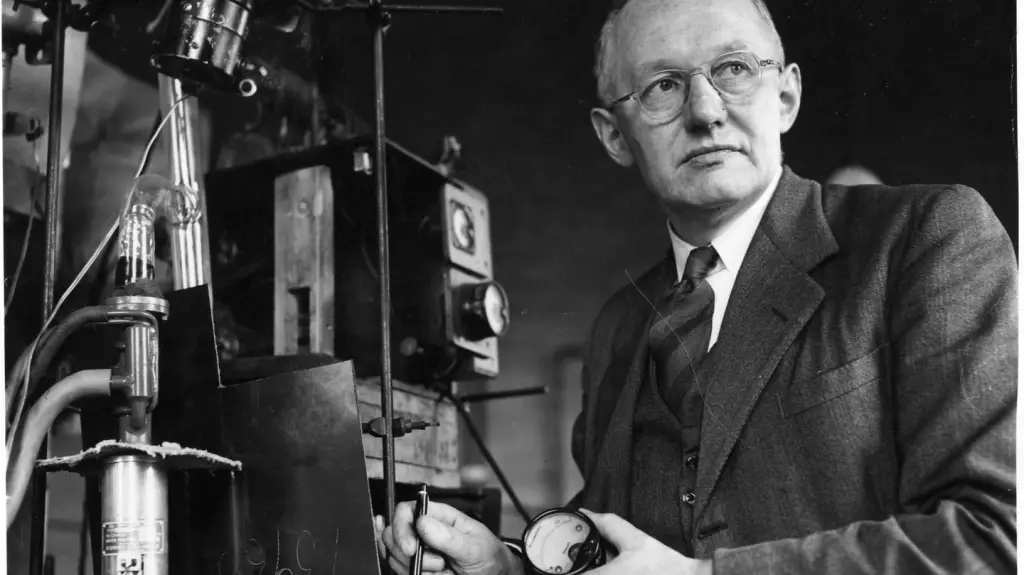
What makes Ernest Walton famous?
Ernest Walton, the Irish physicist who received a Nobel Prize for his contributions to physics, is a great example of someone who defied all odds to achieve greatness.
Walton was born in Waterford in 1903, and his father was a Methodist minister. Walton remained committed to his faith throughout his life, even when he faced some of the most difficult tests that humankind has ever faced.
After graduation from Trinity College of Dublin, Walton began working with John Cockcroft at Cambridge University, where they developed one of the first nuclear transmutation generators. The Cockcroft-Walton generator allowed them to produce nuclear reactions without using any radioactive materials as fuel. This invention would help pave the way for further research into nuclear physics.
Although Ernest Walton was a man who lived out his life as a scientist, he never lost sight of the importance of faith and spirituality.
What is the best Ernest Walton quote?
“One way to learn the mind of the creator is to study his creation.”
[Sources: The Nobel Prize, Encyclopedia Britannica]
#3. Florence Nightingale (1820-1910): The Lady with the Lamp
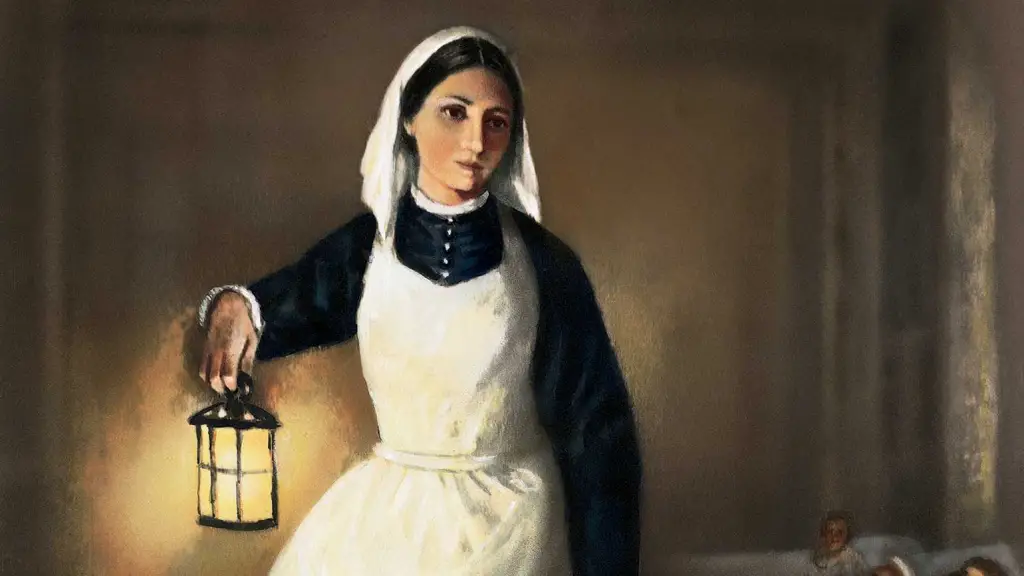
What makes Florence Nightingale famous?
Florence Nightingale was a British woman who made a lasting impression on history. She was one of the first female professional statisticians and the founder of modern nursing theory and training.
Born in Florence, Italy, in 1820, Nightingale was an anomaly in many ways. A woman of her time, she believed that women were capable of important leadership roles and that they should be able to pursue them without interference from men or society. This belief would help shape both her professional life and personal relationships with others.
Nightingale became famous during the Crimean War (1853-1856) when she served as an army nurse trainer and pushed for proper hygiene among soldiers to reduce deaths from the disease. Her work earned her international recognition and led to the establishment of one of the first nursing schools globally— St. Thomas Hospital in London.
Despite having unorthodox views on religion, Nightingale remained a Christian who believed in caring for others as a manifestation of religion.
What is the best Florence Nightingale quote?
“For the sick it is important to be the best.”
[Sources: Encyclopedia Britannica, Nurse Slabs]
#2. Werner Heisenberg (1901-1976): Father of Quantum Mechanics & Nobel Laureate
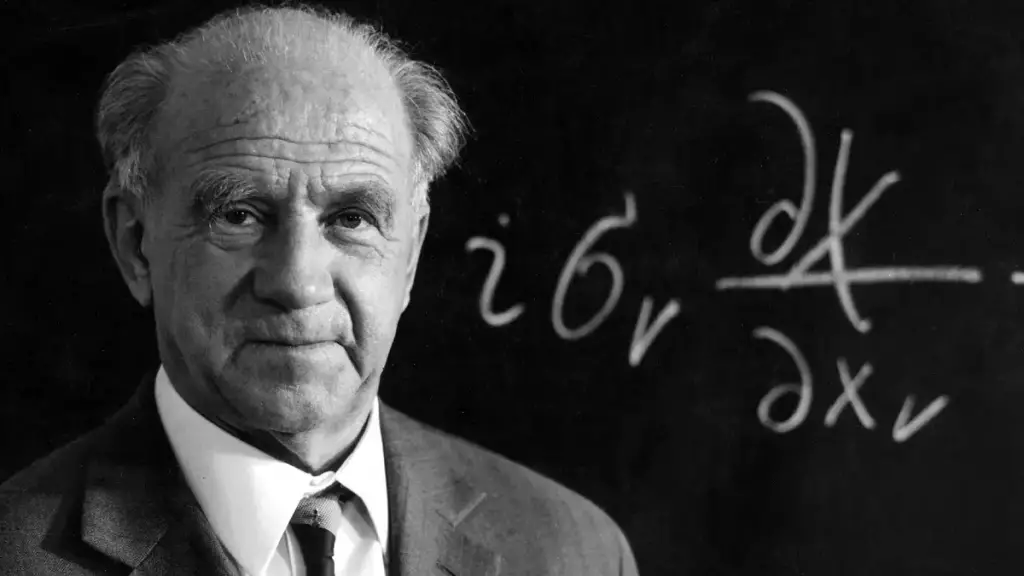
What makes Werner Heisenberg famous?
The German physicist Werner Heisenberg is one of the most influential scientists in the field of quantum mechanics. He was born in Germany in 1901 and became one of the quantum mechanics experts.
Werner Heisenberg is one of the pioneers of quantum mechanics, and he’s also credited with being the first to propose what is now called the uncertainty principle.
In addition to his work in quantum mechanics, Heisenberg also served as a research scientist at Germany’s nuclear weapons program during World War II. He later became involved with nuclear energy research after the war ended.
Heisenberg was a Lutheran Christian throughout his life and was known for his humility and kindness.
What is the best Werner Heisenberg quote?
“The first gulp from the glass of natural sciences will turn you into an atheist, but at the bottom of the glass God is waiting for you.”
[Sources: The Nobel Prize, Encyclopedia Britannica]
#1. Sir Joseph John Thomson (1856-1940): The Physicist Who Discovered The Electron
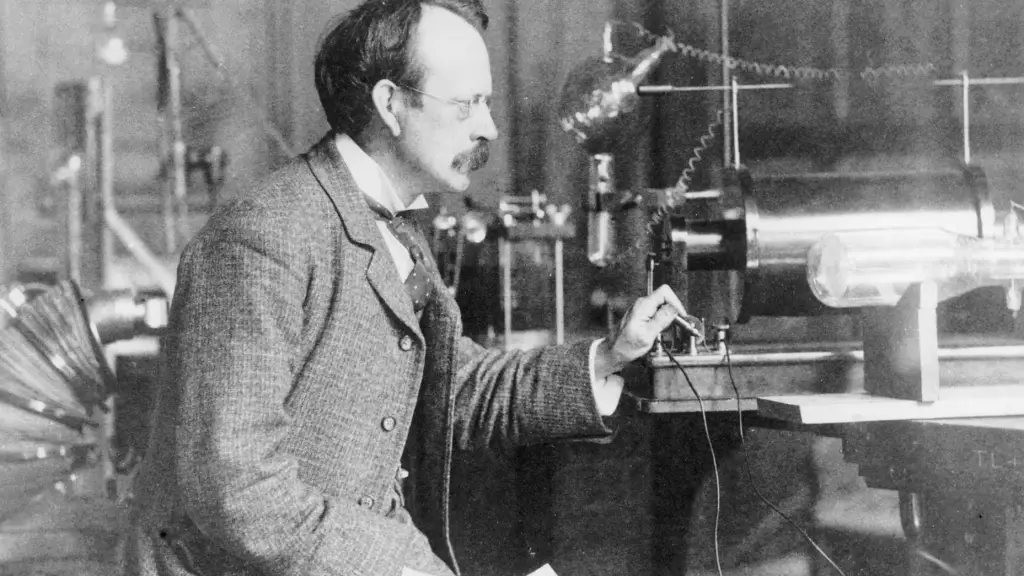
What makes Sir J.J. Thomson famous?
Sir Joseph John Thomson is the name that most people know when it comes to the discovery of the electron. He was born in Cheetham Hill, Manchester, and was a devout Anglican.
J.J. Thomas was one of the first to discover a subatomic particle—the electron. He also discovered isotopes of non-radioactive elements and proved that potassium has natural radioactivity.
Thomson’s research led to the development of the mass spectrograph, which can be used today in many different areas of science, including physics and chemistry.
He won the Nobel Prize in Physics for his research work on the conduction of electricity.
What is the best Sir J.J. Thomson quote?
“If the modern conception of the atom is correct the barrier which separated physics from chemistry has been removed.”
[Sources: The Nobel Prize, Encyclopedia Britannica]
Final Thoughts
Studying is essential for everyone. It helps make you learn, develop your knowledge, and above all, make you more mature. You can see this in the lives of famous Christian Scientists who have done remarkable things within their respective fields of study. These people have attained high positions in different sectors such as education, technical areas, business services, and even biotech.
Who is your favorite Christian scientists?

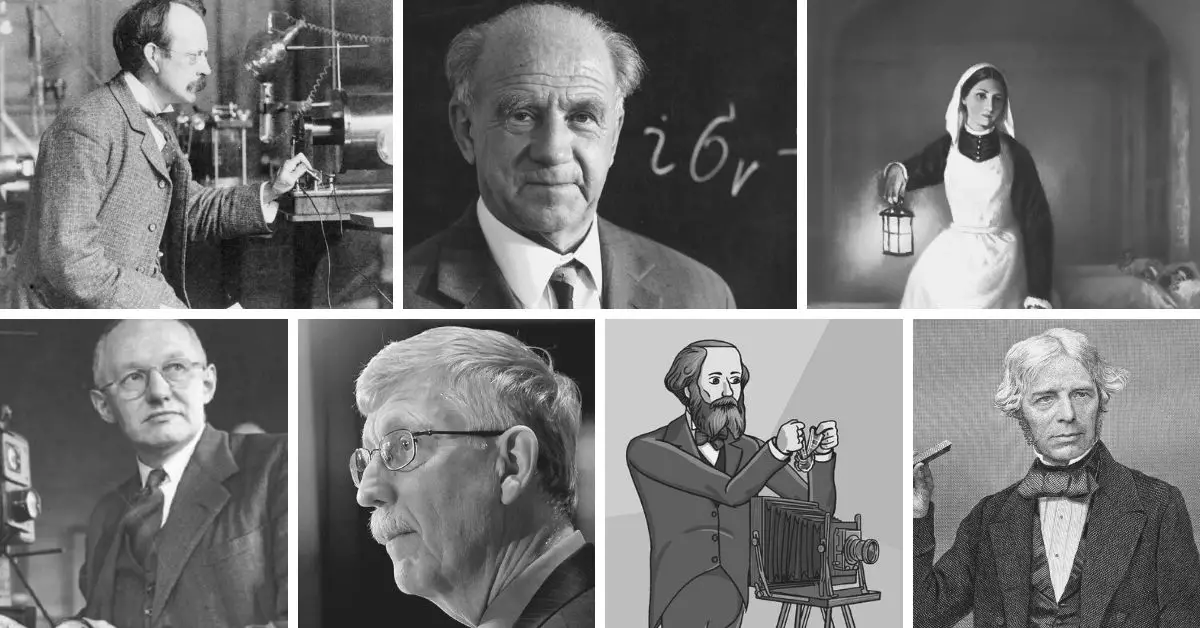

You can’t threaten to torture or kill someone unless they agree with you, then claim that they agree with you !
You can’t claim that there are no homosexuals in a country where admission means death.
You can’t claim that there are no atheists in a country where admission means death.
You can’t claim that scientists believed in god in a country where denial meant torture and or imprisonment and or death.
Claiming that Boyle, Lavoisier, Newton, Euler, Faraday, Maxwell, Mendel, Compton, Riemann, Gaussian, Thomson, Volta, Pascal, Kelvin, Davy, Ambrose, Morse, etc etc etc were Christian is a logical fallacy ad baculum.
Sir, state sponsored persecution of skeptical academics has not been a thing in Western Europe since the enlightenment. Most of these men were at least contemporary to Charles Darwin and even Karl Marx, who were not only not killed by the state but widely cited in circles these men lived their lives in.
Not commenting on their views on God or even not showing up for regular religious services would not have raised eyebrows in their professional colleagues. Blatant skepticism or denial wouldn’t have cost you a seat on scientific bodies sponsored by governments. I think France has had a government policy of secularism since the revolution, where they regularly sent priests to guillotine less than 100 years prior to quite a few of these men’s births.
I can’t pretend to know someone’s sincerity especially well after their death. But suggesting Mendel went out of his way to take religious orders in a time period when that would have been odd professional choice for Germany to avoid some kind of state consequence makes no sense.
I’m aware that this might not be super common knowledge, but being a scientist who is Christian is a totally different thing to being a Christian Scientist or a “Christian Science practitioner”.
A little clarification on the article might be in order, because Christian Scientists are a faith tradition that believes in forgoing medical or even dental care in favor of prayer in most if not all circumstances, it’s been around since about 1910-ish. I realize how some of this wording could be an easy mistake to make, but just putting information out there that may be less well known outside of the US or Britain.